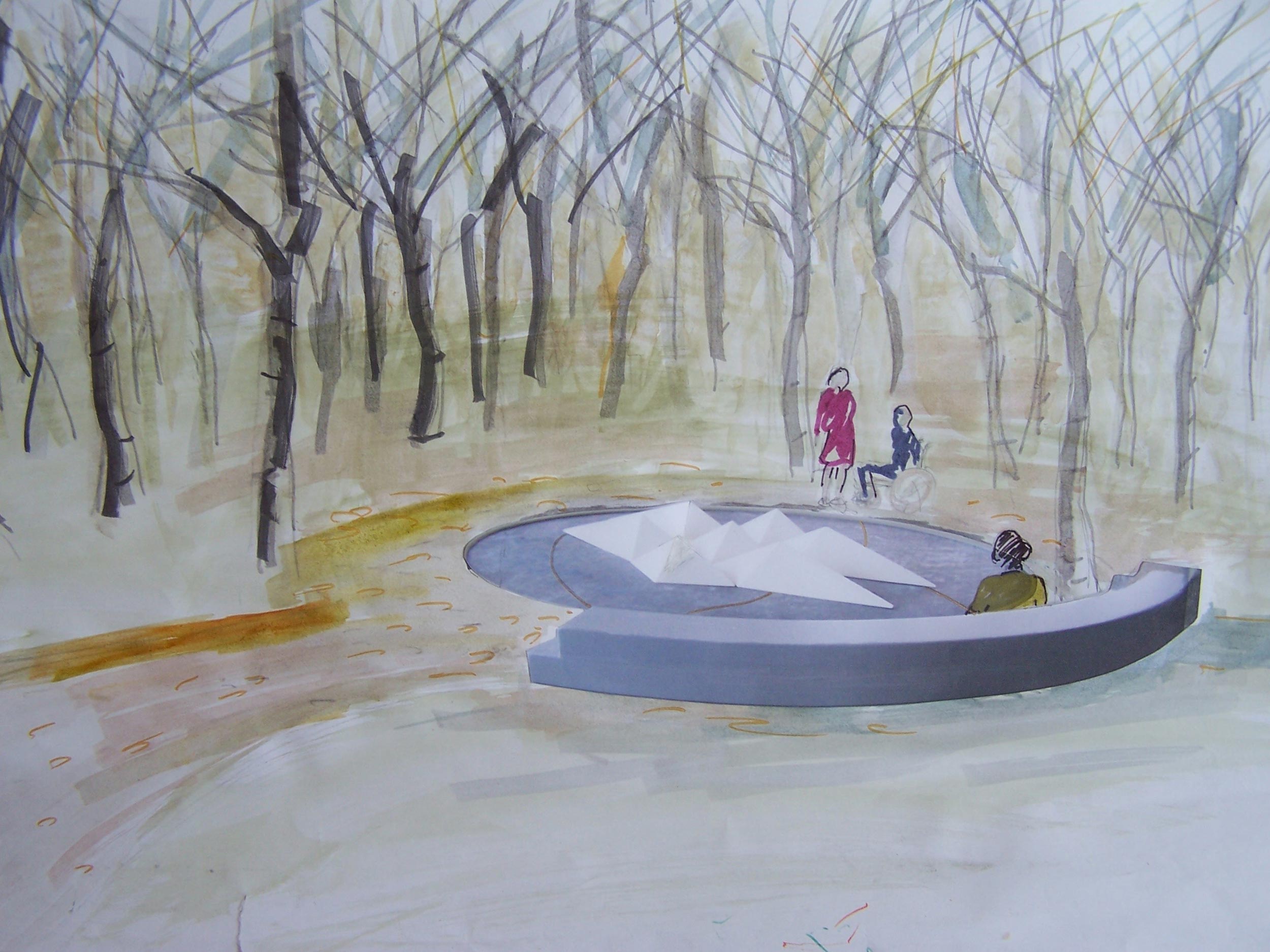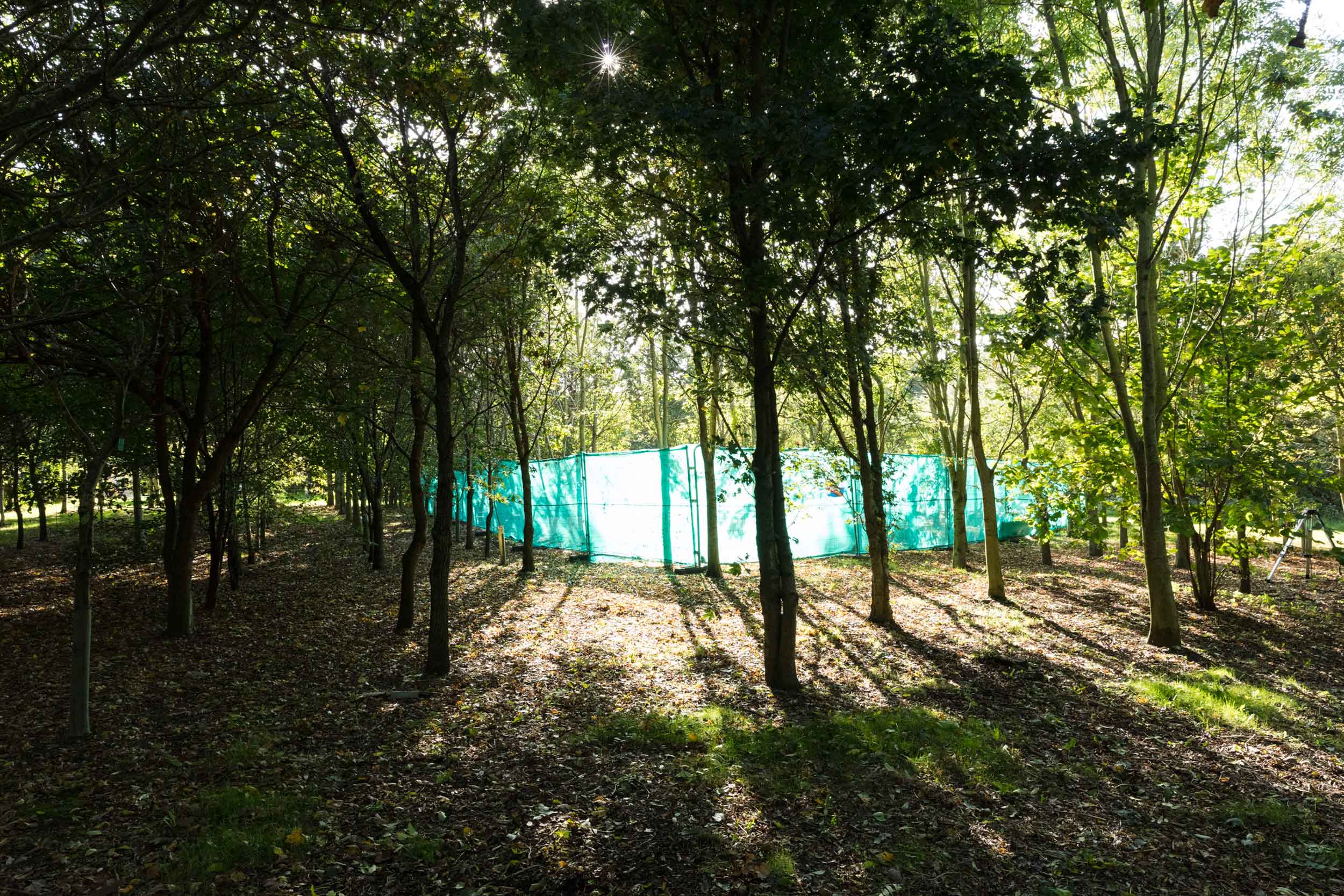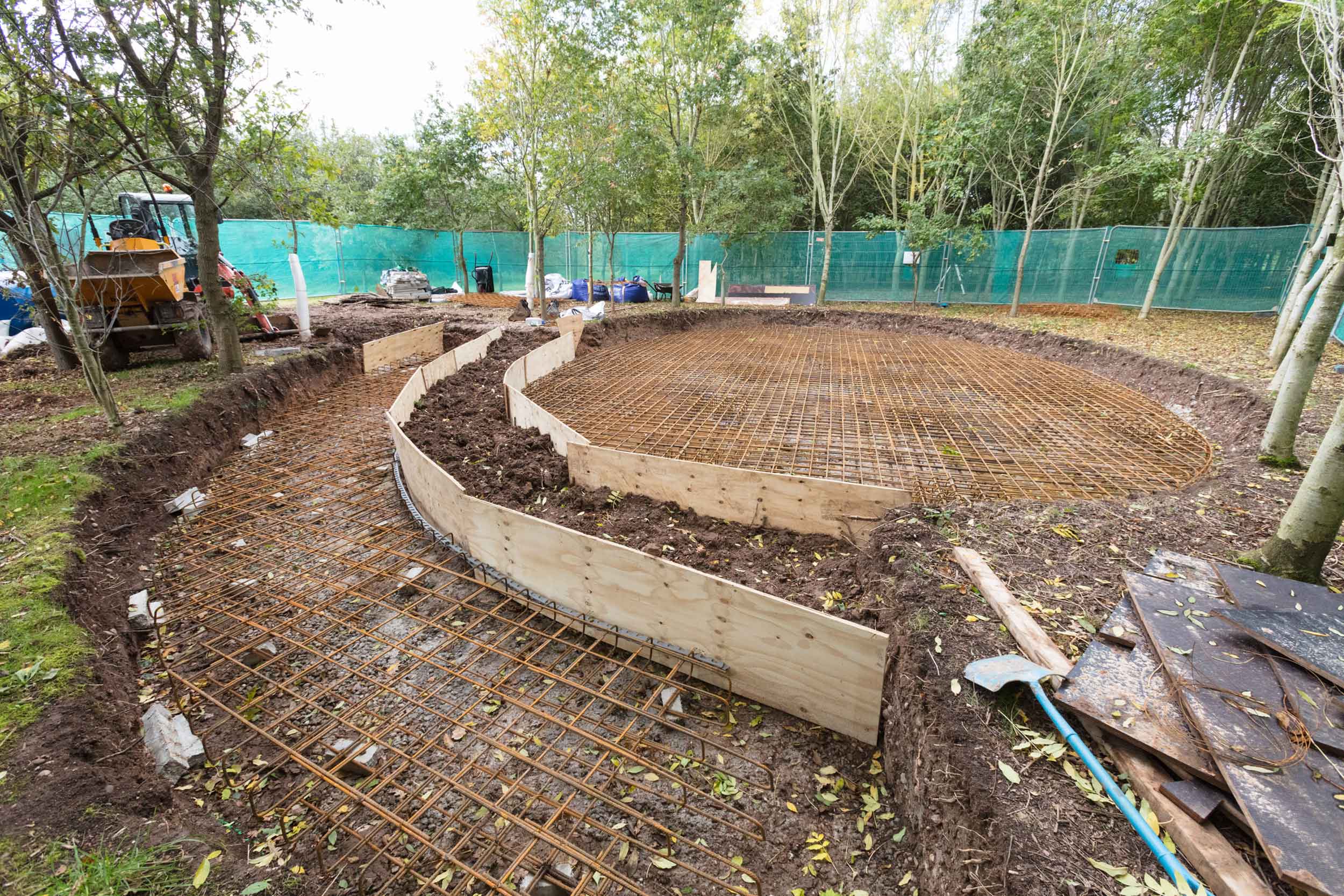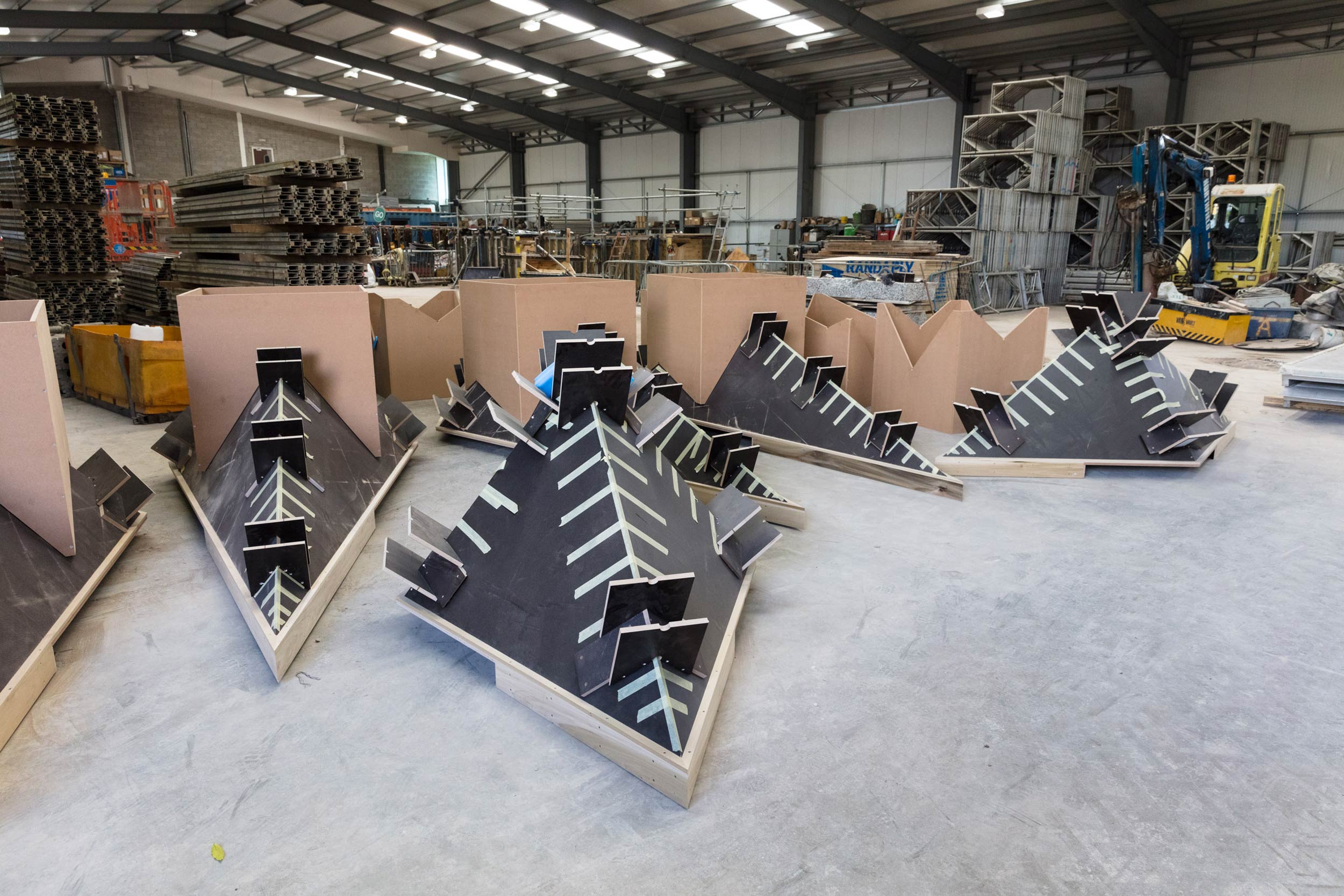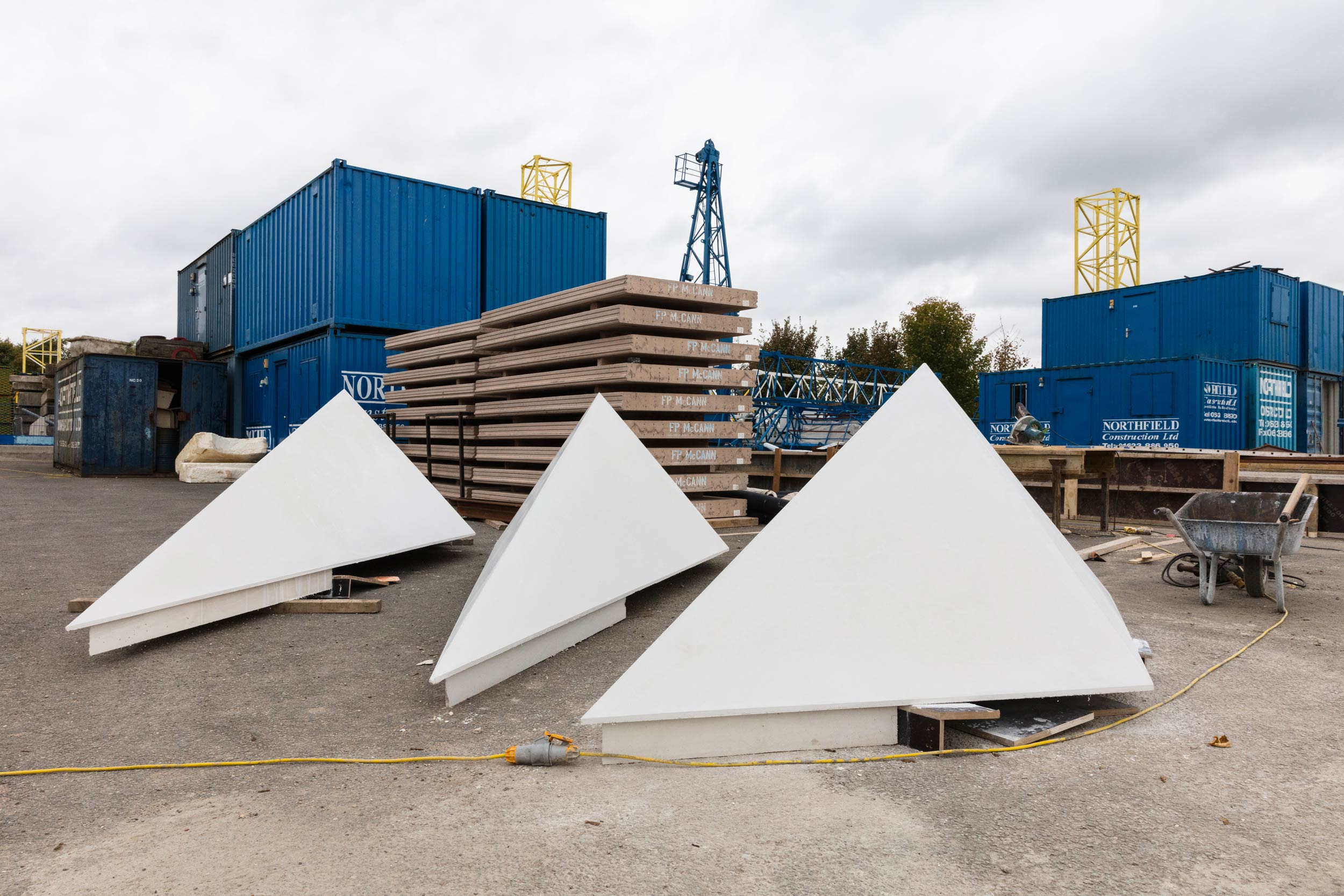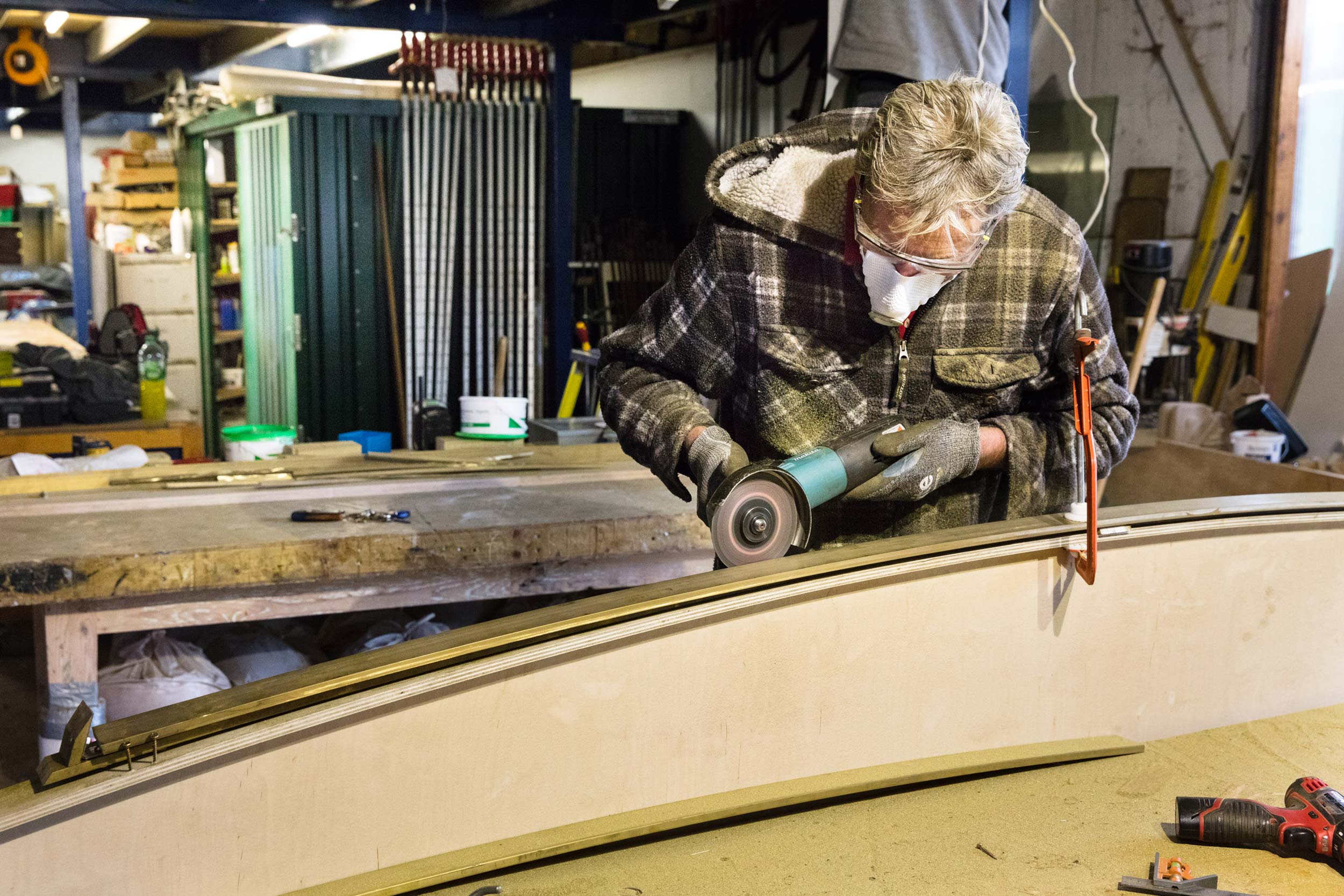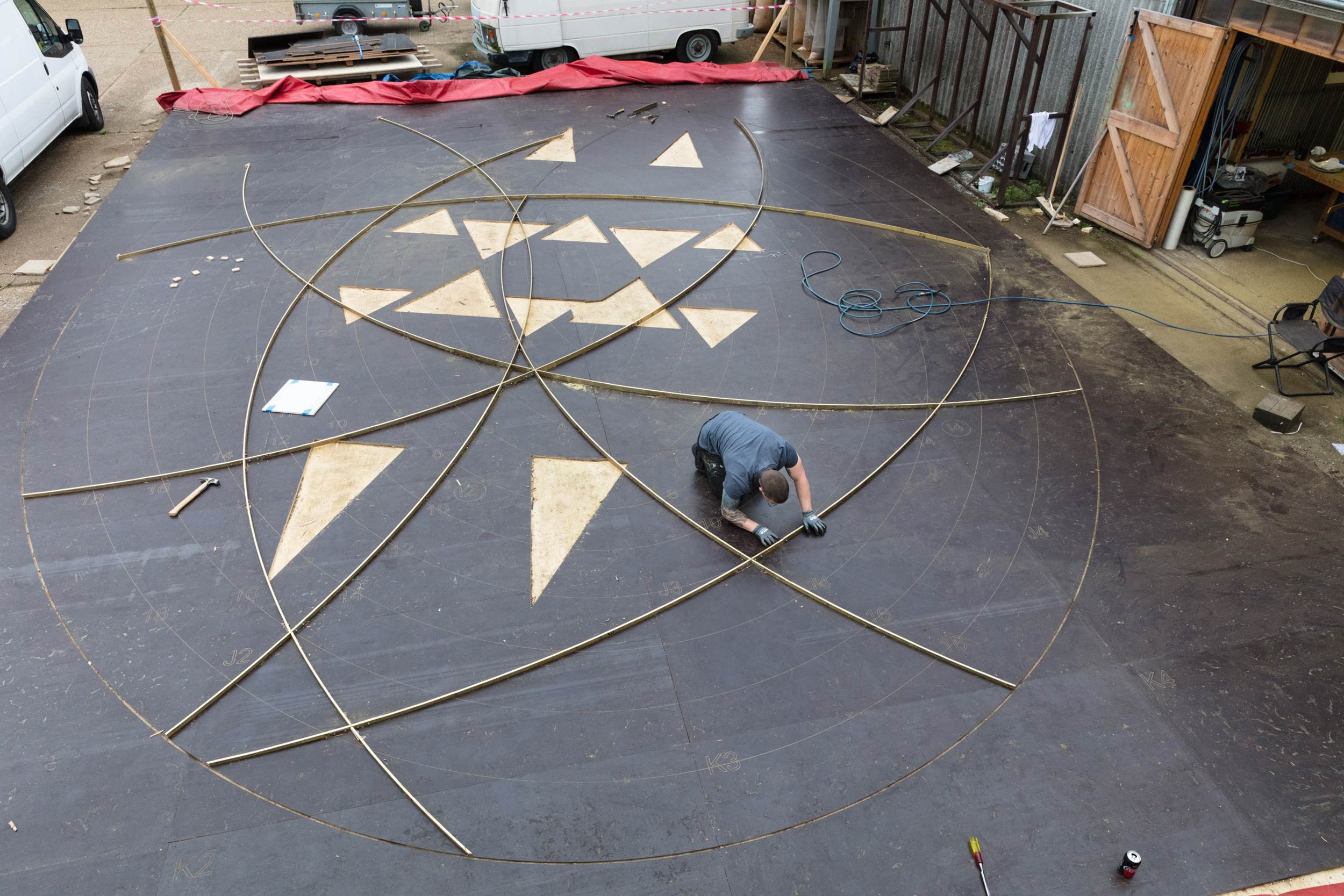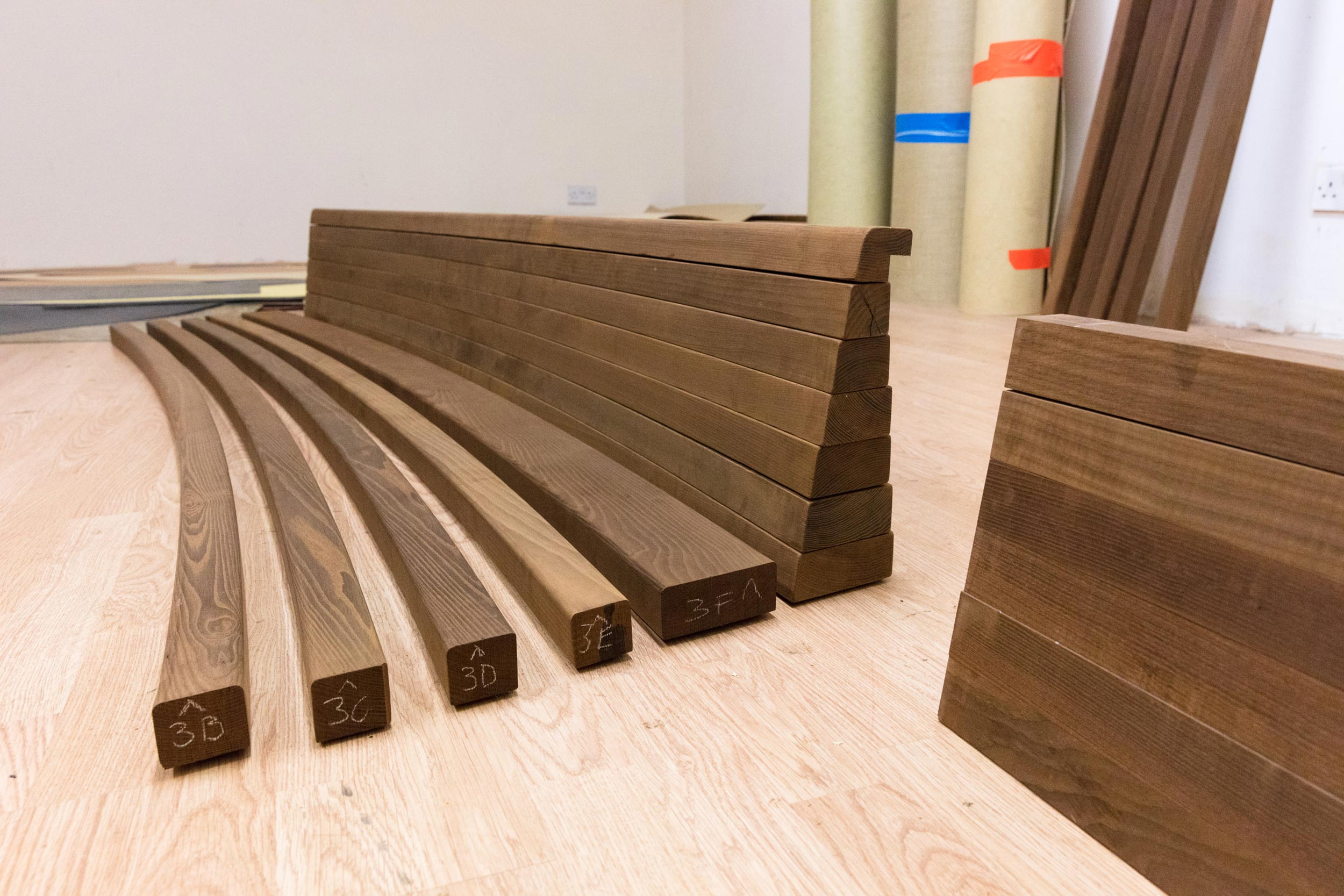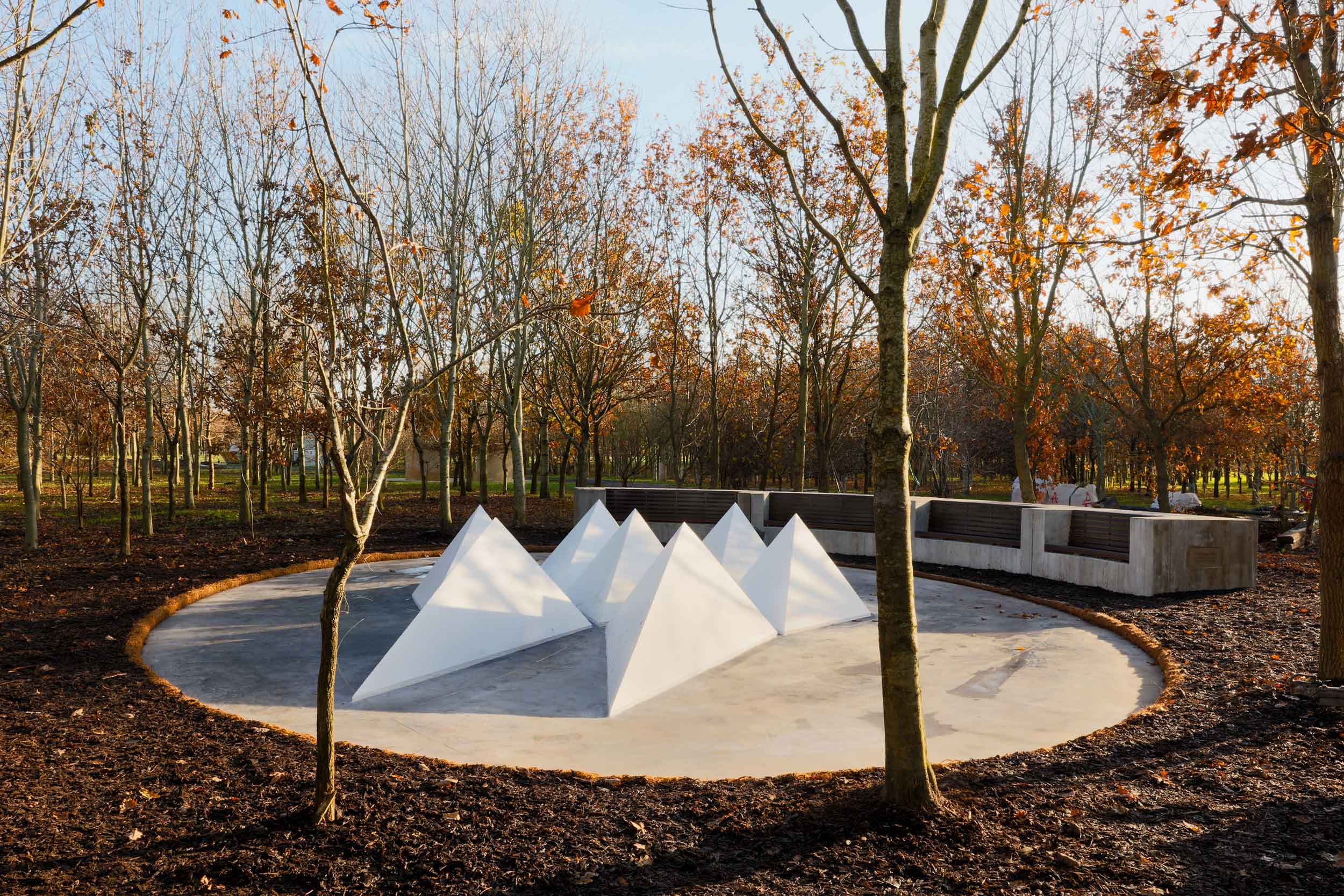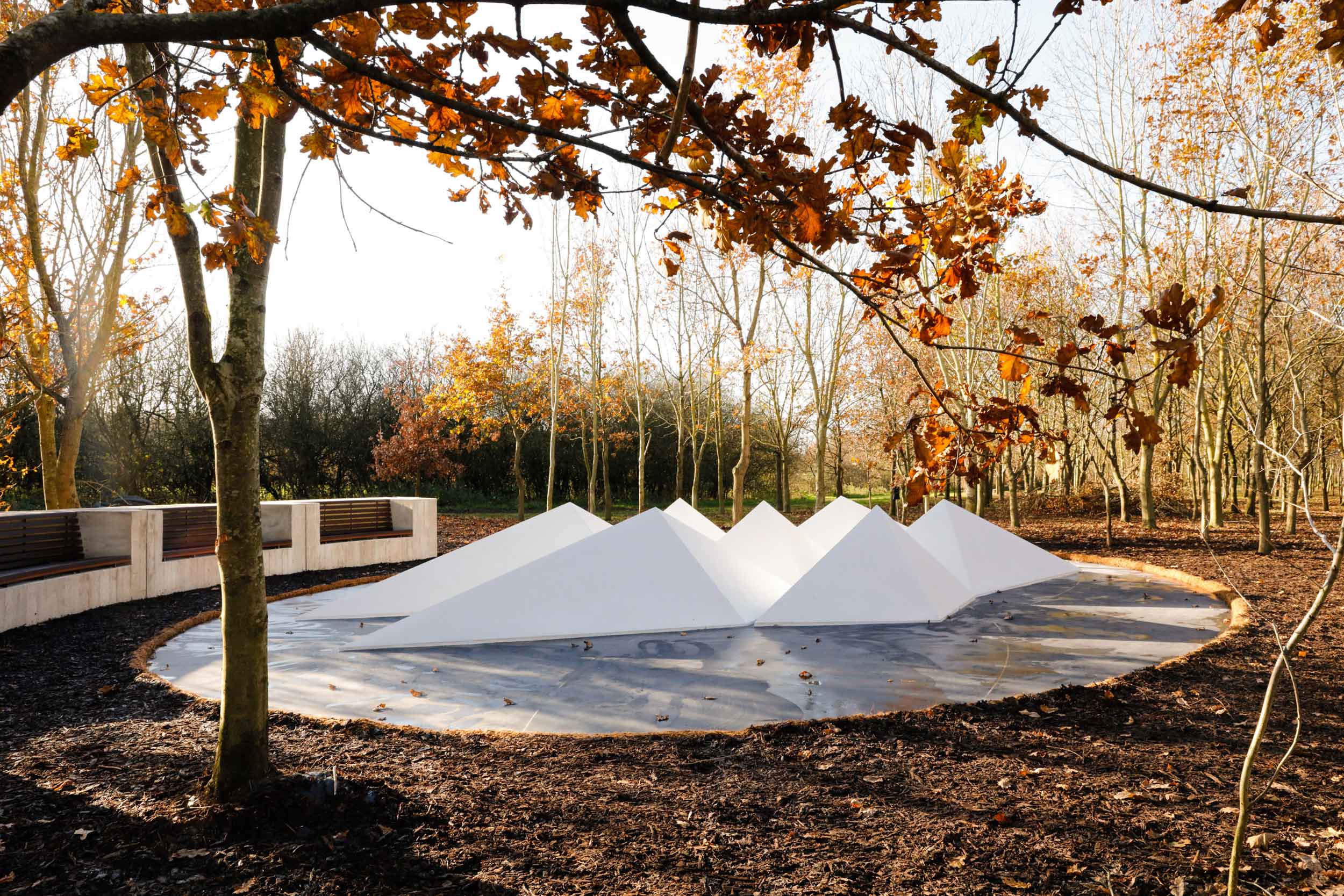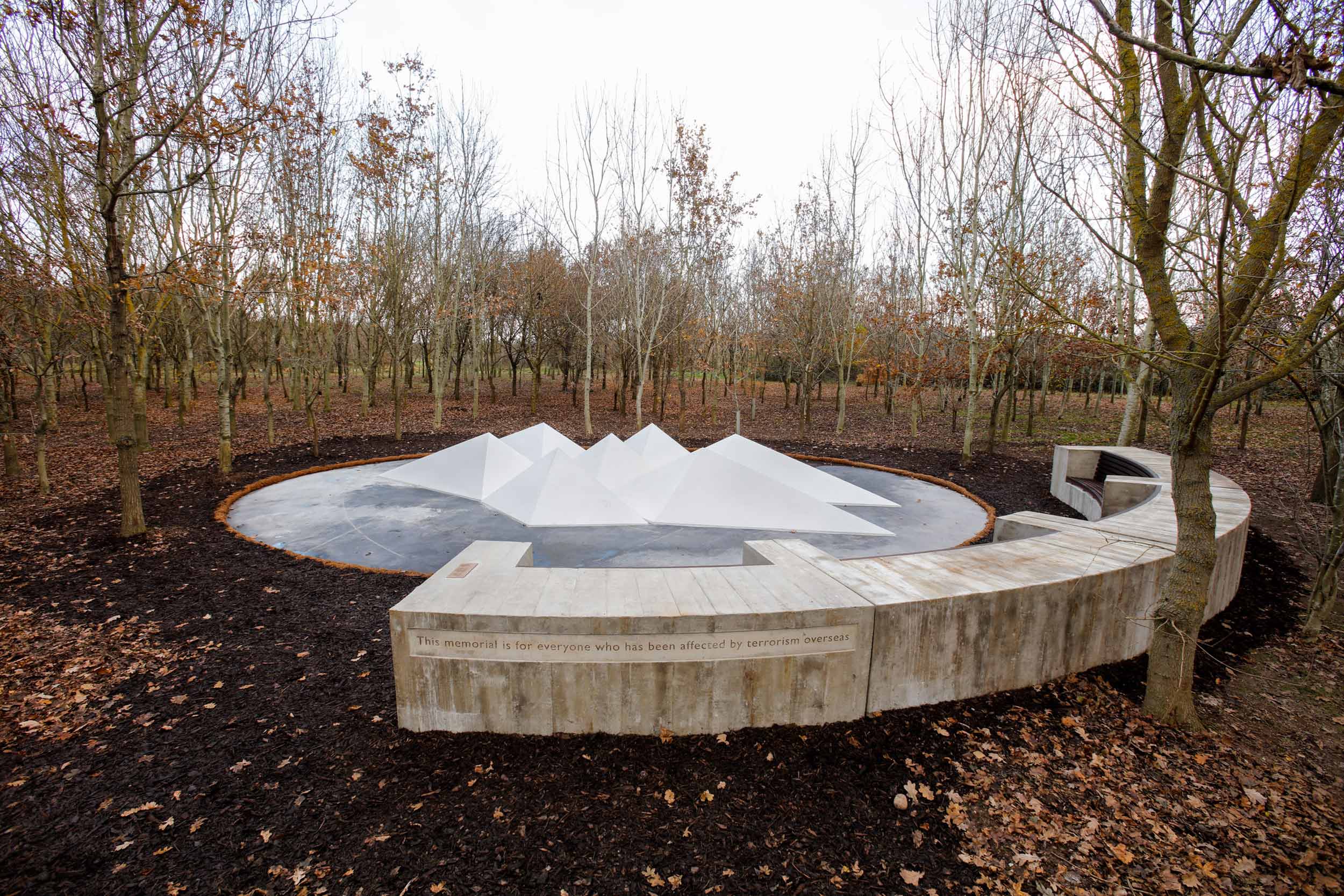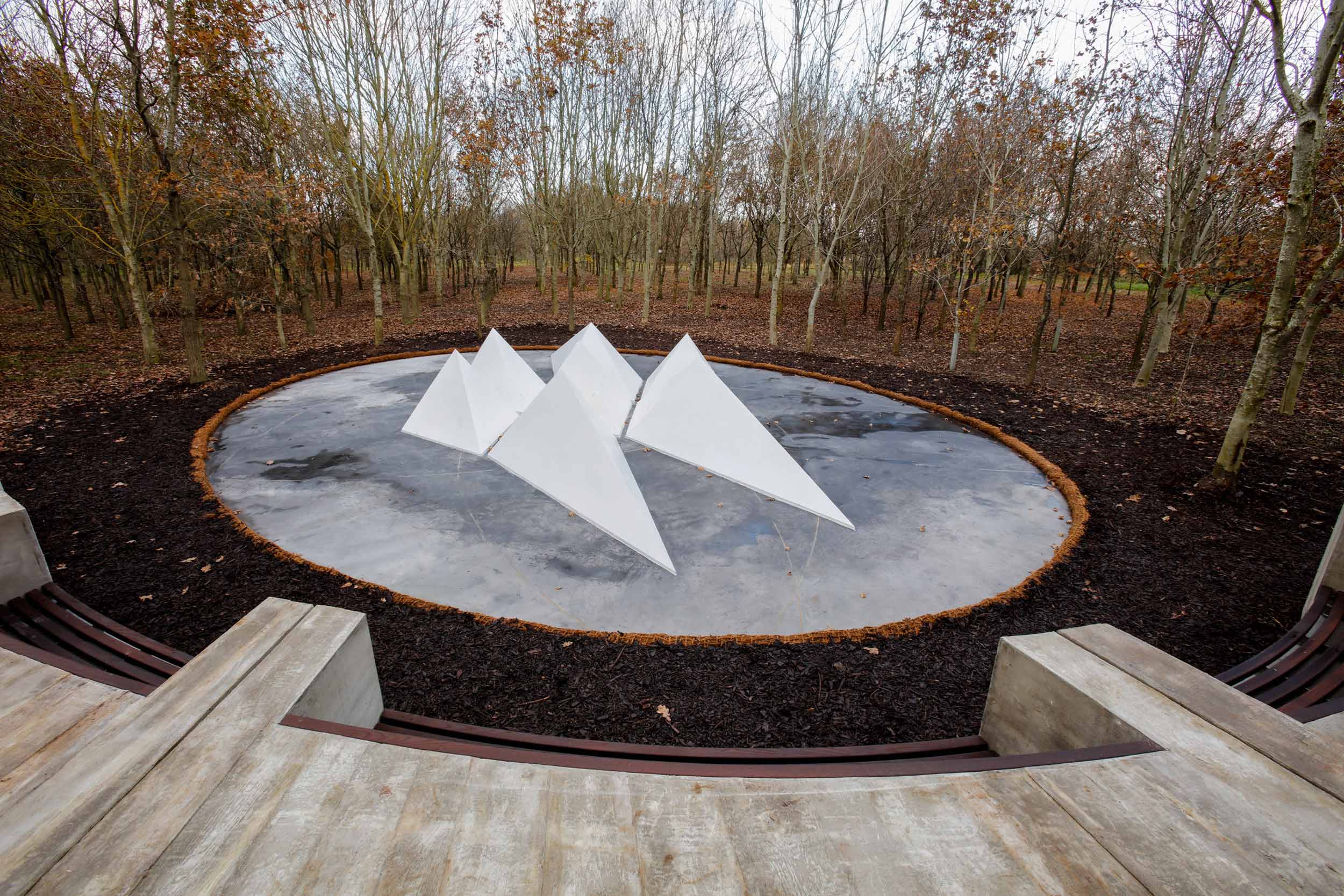Still Water
Sculptor and maker, Adam Kershaw is proud to announce that a collaboration with highly-acclaimed artist, Alison Wilding RA, has led to their sculpture, Still Water, being selected as a new memorial dedicated to victims of terrorism overseas.
Adam and Alison met in the 1990’s and Adam was delighted when Alison asked him to co-author this “simple, sensitive and beautiful” sculpture. Still Water will be cast from concrete and depicts a hidden woodland pool. Water, land and air come together in the memorial, which is composed of a concrete ellipse set just below ground level. The sculpture will be installed at the National Memorial Arboretum in Staffordshire by the end of the year, with a dedication event likely to follow in the Spring of 2018.
Speaking of the announcement, Adam said “We are thrilled to have been chosen to make this memorial and have been encouraged by the positive feedback from the families and others who took part in the selection process”.
Still Water was selected by an independent Panel, chaired by Baroness Lynda Chalker, following invited proposals by a number of artists, and based on a public consultation carried out in 2016. The selection process included sharing two short-listed proposals with families who responded to the consultation saying that they had lost loved ones in terrorist incidents overseas, and were willing to be consulted further on the Memorial.
The Memorial
The memorial will be sited a short distance within a copse so that it might gradually reveal itself, like coming across a hidden pool within a woodland glade. The pathways leading to the memorial will be made of natural materials and softened by the growth of the woodland floor so that this feeling of discovery is enhanced.
The memorial itself is composed of a concrete ellipse set just below ground level so that its perimeter becomes blurred and softened as nature takes its course.
Colour is added to the top layer of cement, which is hand-trowelled to give a ruffled effect, as if the dark waters of the hidden pool are being stirred by a gentle breeze. The concrete ellipse is criss-crossed with brass meridian lines that form a strong armature for the base of the work and also echo the lines encircling the globe.
The surface of the ellipse contains seven pale cast concrete shapes, which shift between figuration and landscape and reference a mountainous terrain.
Three elements: water, land and air, come together
If sitting by a woodland pool offers a kind of balm, the artist hopes that so might this memorial. The seating comprises a two-tiered quarter section which follows the curve of the concrete ellipse, with slats of heat-treated ash providing the base and back between the armrests. It is turned away from the main pathway to allow for quiet contemplation.
Alison Wilding
Alison Wilding makes abstract sculpture. She is known for the wide range of both materials and processes she employs, as well as her capacity to work at the extremes of scale: from the hand held object to all but monumental sculpture.
Born in Blackburn, Lancashire, in 1948, Wilding graduated from the RCA in 1973. She came to prominence in the 1980s as one of a group of sculptors including Richard Deacon and Antony Gormley. Wilding’s first major solo exhibition was at the Serpentine Gallery in 1985. Since then she has shown extensively throughout the UK and abroad, and has been acquired into major public collections in the UK. Public commissioned works include Migrant, 2004 for Snape Maltings, Shimmy, 2013 at 10 New Burlington St, London and Herm 2017- a drinking fountain for a new garden in Rathbone Place. Wilding was nominated for the Turner Prize in 1988 and 1992 and elected to the Royal Academy in 1999. Awards include a Henry Moore Fellowship at the British School at Rome (1998), Joanna Drew Travel Bursary (2007), Paul Hamlyn Foundation Award (2008) and Bryan Robertson Award (2012). Wilding lives and works in London and has been represented by Karsten Schubert since 1987.
